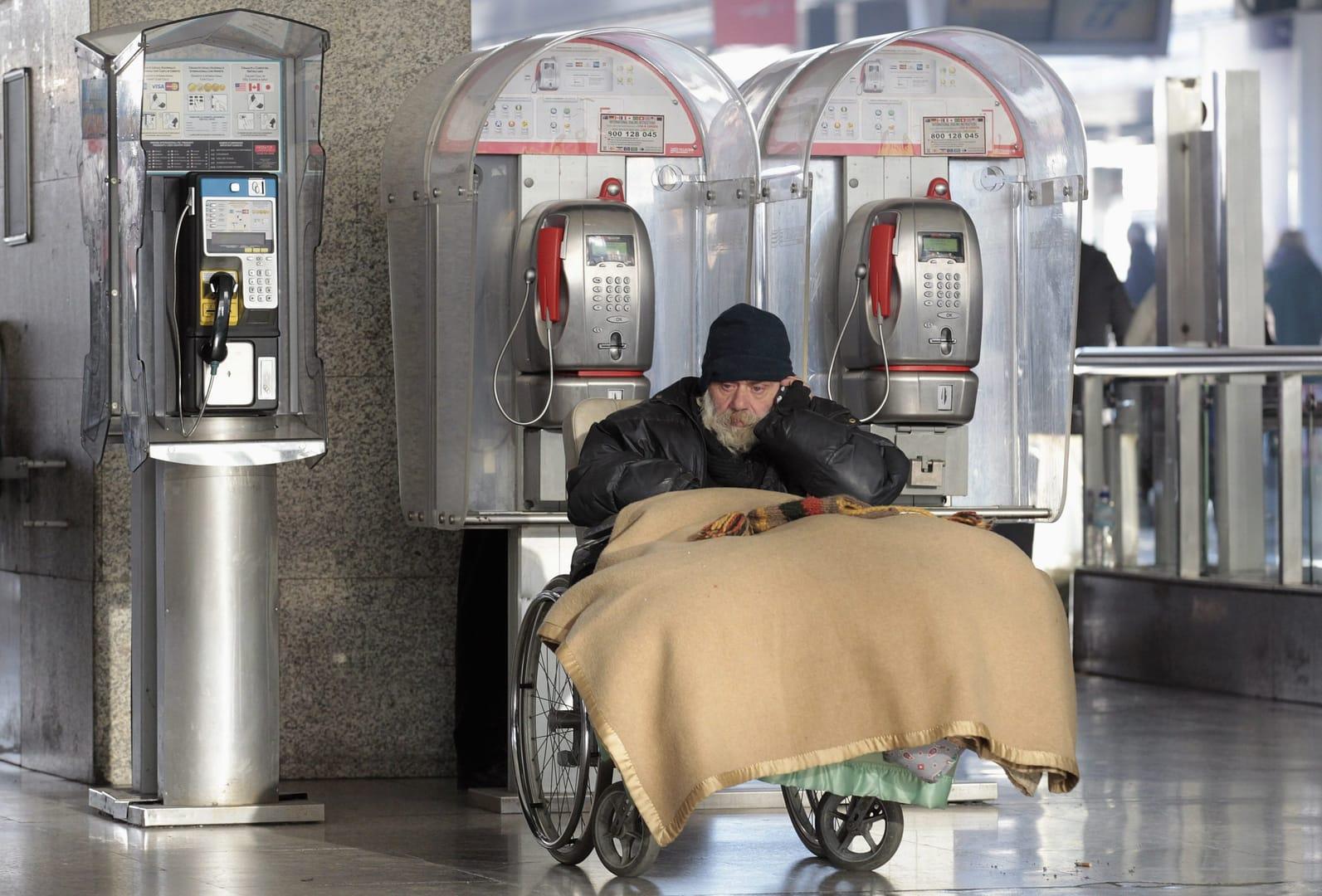ROME — In an effort to provide immediate shelter and aid to people living on the street in Rome while also trying to curb the spread of coronavirus, the diocesan Caritas and the Italian Red Cross have started operating a testing and temporary holding center for new arrivals before they go on to regular shelters.
The new offering “represents an innovative service that works as a central hub, a missing link” for new referrals arriving off the streets, so that they have a safe place to be tested for COVID-19 and isolated if need be — services that cannot be guaranteed at Rome’s established shelters and facilities, said a Jan. 7 joint press release.
This way, public health can be safeguarded while also safely taking in and helping people in extreme poverty before they access the many services offered by parishes and volunteers that normally intensify and expand their outreach in the winter months, it said.
The new “pre-welcoming” service, which started Jan. 7, can house 60 people at a time. They can receive testing for COVID-19 and have safe, adequate shelter necessary for a 10-day isolation or quarantine before heading to longer-term shelters, hostels and parish-run centers.
The new service is offered at the Caritas shelter located in Rome’s central Termini train station. The Don Luigi Di Liegro shelter had to temporarily close in early October after nearly half of its 72 residents tested positive for COVID-19. A second round of testing later that same month revealed an even greater number of infections.
About 180 people were living in the shelter in November, the January press release said, and they were moved to two separate facilities in December so the shelter can now be used as an admissions and screening hub to prevent spreading infections and triggering outbreaks in the different housing facilities throughout Rome.
Father Benoni Ambarus, head of Caritas Rome, said in the press release that the new initiative is “modest” compared to the huge needs. But, he said, they wanted “to show how it is possible to channel the energies of the world of the church and volunteers.”
“As our bishop, Pope Francis, reminded us, things will turn out better to the extent to which, with God’s help, we work together for the common good, focusing on those who are the weakest and most disadvantaged,” he said.













